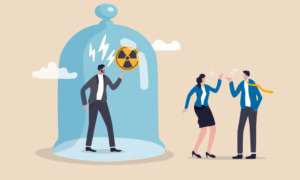As an industry that relies significantly on volunteers to carry out its work, the youth field knows that a lot of agencies accept too many of those volunteers with crossed fingers. A report released last month provides data that expose huge shortfalls in volunteer background screening at nonprofits and warns that they need to do more.
Keep in mind that the survey and accompanying report from the National Center for Victims of Crime (NCVC) were funded by a $70,000 grant from ChoicePoint, a Georgia-based company that provides businesses, governments and nonprofits with background screening and other risk-reduction services in the United States and abroad. ChoicePoint’s reported annual revenue last year was just under $1 billion.
The survey results, however, ring true.
The telephone survey of 517 nonprofit human services organizations – more than half with youth clientele – found that most conducted basic checks of volunteers, such as personal interviews, but fewer checked references or did criminal background checks. Most screened volunteers less thoroughly than they screened employees, and limited their searches geographically.
About 12 percent of the nonprofits reported that they conducted no volunteer screening.
The top reasons given by nonprofits for not conducting thorough background checks included that the process was too expensive, too time-consuming and not useful, or that it threatened to offend and dissuade volunteers.
Of the organizations that said they regularly screen volunteers, nearly half said the process identified someone “inappropriate,” which could mean anything from having a criminal record to not agreeing with the organization’s mission, the report said.
At a news conference in Washington, NCVC Executive Director Mary Lou Leary said nonprofits can take cost-efficient steps, such as calling personal and professional references, scanning online sex-offender registries and checking social services agencies for child or elder abuse complaints about potential volunteers.
Or, they could save time and pay someone. The National CASA (Court Appointed Special Advocates) Association pays ChoicePoint a discounted rate of $18 per volunteer for comprehensive background screening, said M. Carmela Welte, CASA’s deputy chief executive officer. That includes record checks of state, local, county and national databases and of motor vehicle records. The association also pays around $25 per person under SafetyNET, a federal pilot program that provides nationwide FBI fingerprint-based background checks, in three to five days, to qualifying youth-serving organizations.
Some large organizations, like the Boys & Girls Clubs of America, charge volunteers a $20 application fee to offset the cost of comprehensive background checks.
The report recommends that all volunteers be consistently and comprehensively screened; that volunteer names (and, if possible, fingerprints) be checked against a national database; that child or adult protective services records be checked in all relevant states; and that clear screening guidelines be set and communicated to all staff and volunteers.
In 2006, roughly 61 million adults worked as volunteers, with 27 percent of them serving with education and youth programs, according to federal government data.
Contact: National Center for Victims of Crime (202) 467-8700, http://www.ncvc.org; MENTOR’s SafetyNET program, http://apps.mentoring.org/safetynet/index.adp.































